Q&A with CNN’s Richard Quest, one of the world’s most frequent flyers
Step aside, Ryan Bingham – you've got some well-travelled competition.
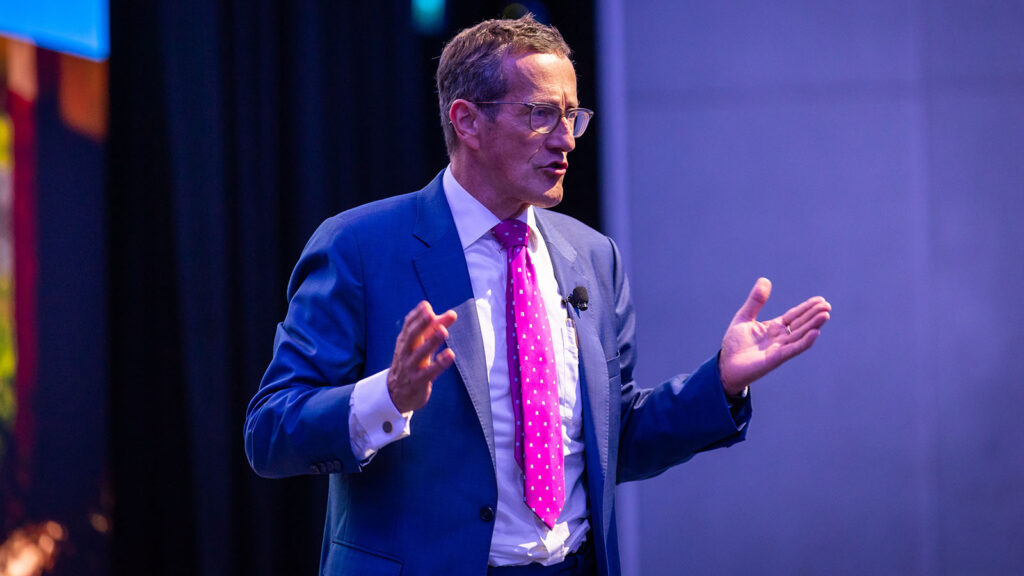
What we'll be covering
When it comes to frequent flyers, CNN anchor Richard Quest is a real-life ‘Ryan Bingham’. As with George Clooney’s fictional character in Up in the Air, Quest is also based in the United States. And he regularly hits the road to record the next episodes of CNN Business Traveller and Quest’s World of Wonder. Somewhere in between, he finds time to front Quest Means Business five times a week, too.
Just thinking about his schedule is enough to make me weary! And yet, despite the heavy workload and near-constant flying, Quest is a lively ball of energy: both on and off the air. So much so that even on holidays, he just keeps travelling. This, of course, is reflected through his shiny frequent flyer cards: plural. I’ll use my discretion here, but I will say that it’s not every day that you meet somebody who’s achieved more than Ryan Bingham in that space. Enough said.
Now as it happens, Quest’s latest vacation brings him to Sydney – but he still has a tiny bit of work to do. He’s this year’s keynote speaker at the TravMedia Summit, an invitation-only conference for travel writers, editors and industry representatives, where we have a chance to catch up.
Quest recounts the memories of his very first flight through to some of his more recent ‘avgeek’ experiences. There’s travelling on Concorde, showering on a plane, taking journeys longer than the world’s longest passenger flight… you name it, he’s done it. And speaking of long flights, Quest also shares his view on whether it’s best to take the most convenient flight on every journey or whether status is a good enough reason for a more rewarding detour. There’s a lot to cover, so let’s get underway!
To fly direct or connect?
I know my own preference in this space, but I’m curious to hear from somebody who travels even more frequently. When there’s a direct flight from where you are to where you need to be, is it better to be airline-agnostic and just jump aboard? Or are the perks of status so great that detouring is worth it for those all-important elite benefits and accruals?
‘Whoa, whoa, you mentioned the emergency word,’ Quest quips to the question. ‘And which word was it? Status. You’re going to fly who you’ve got status with, because they’re going to treat you that bit better, and you’re going to get the upgrade.’
But what if you’re already fortunate enough to be booking Business Class? Does status matter so much? Quest jumps in and asks, ‘do you have status with any airline?’ ‘A few,’ I reply. ‘A few? Then you know the answer. You’re always trying to get the next one up … in the hope that, eventually, you might make the (Qantas) Chairman’s Lounge. Which I have not made, by the way!’ Quest jests.
Let’s say you don’t have status, though. What drives a traveller to book with one airline over another?
‘As a general principle … first of all, cost. How much does it cost to get there? No one really wants to travel at the back if you can travel at the front,’ especially if one airline has a cut-price Business Class fare while another is asking a hefty amount just for an Economy ticket.
‘If you can travel in the middle and potentially get an upgrade to the front, all the better. So that’s the first thing. Now, all (other) things being equal against cost. Well, I’m geek. I don’t want to go outside. If it’s a (transit) in Singapore or whatever, I’ll probably do that. Not because I want to see what Changi’s got, (but) do I relish the thought of 20,000 miles in a tube? The answer’s no, even in Business.’
‘But status. Status is the number one driver.’
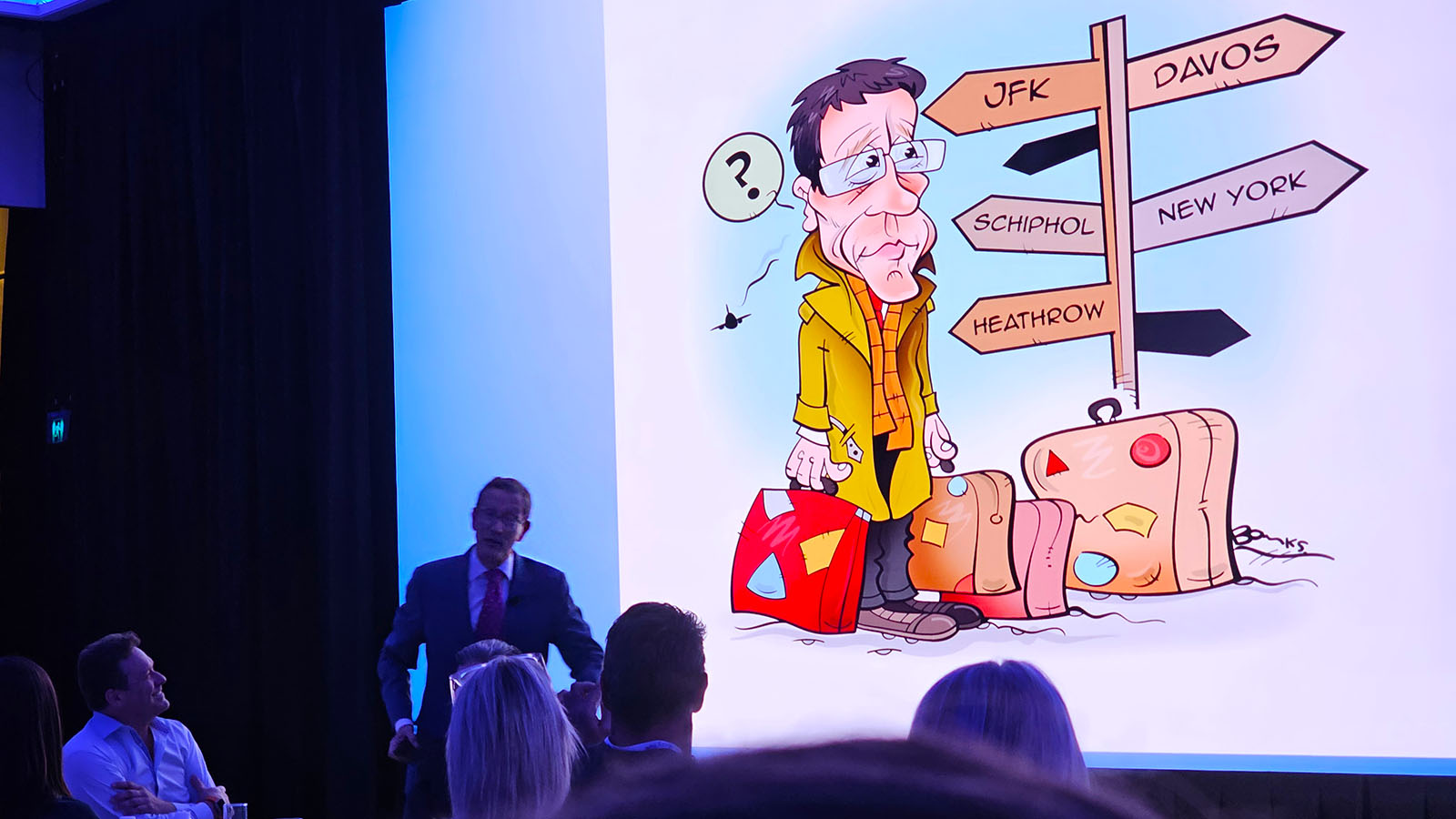
The future of ultra-long flights
Qantas may be gearing up for the public launch of non-stop flights between Sydney and London in the years to come. But of course, Quest has already done this route in a single hop, giving an early peek into the future.
‘I did a demonstration flight from London to Sydney. Nineteen hours, nine minutes wanting to kill somebody,’ Quest jokes with a smile – and I can’t help but laugh. Personally, I’ve done the world’s longest commercial flight – 18 hours 40 minutes from Singapore to JFK for Point Hacks – and even at the front of the plane, I can relate!
But speaking of that special London-Sydney flight, ‘we used a Dreamliner, and there were only 28 of us on board or something. They weighed us before we got on. It was just an extraordinary flight, and that is the future.’
Quest poses an interesting question, though. ‘How many of you would actually want to fly non-stop from Sydney to either London or New York in Economy? You see, we all want to do it at the front, particularly in the new Qantas First (which has) a seat and a bed. Very nice. But row 96 down by the toilets, I’m not quite so sure.’
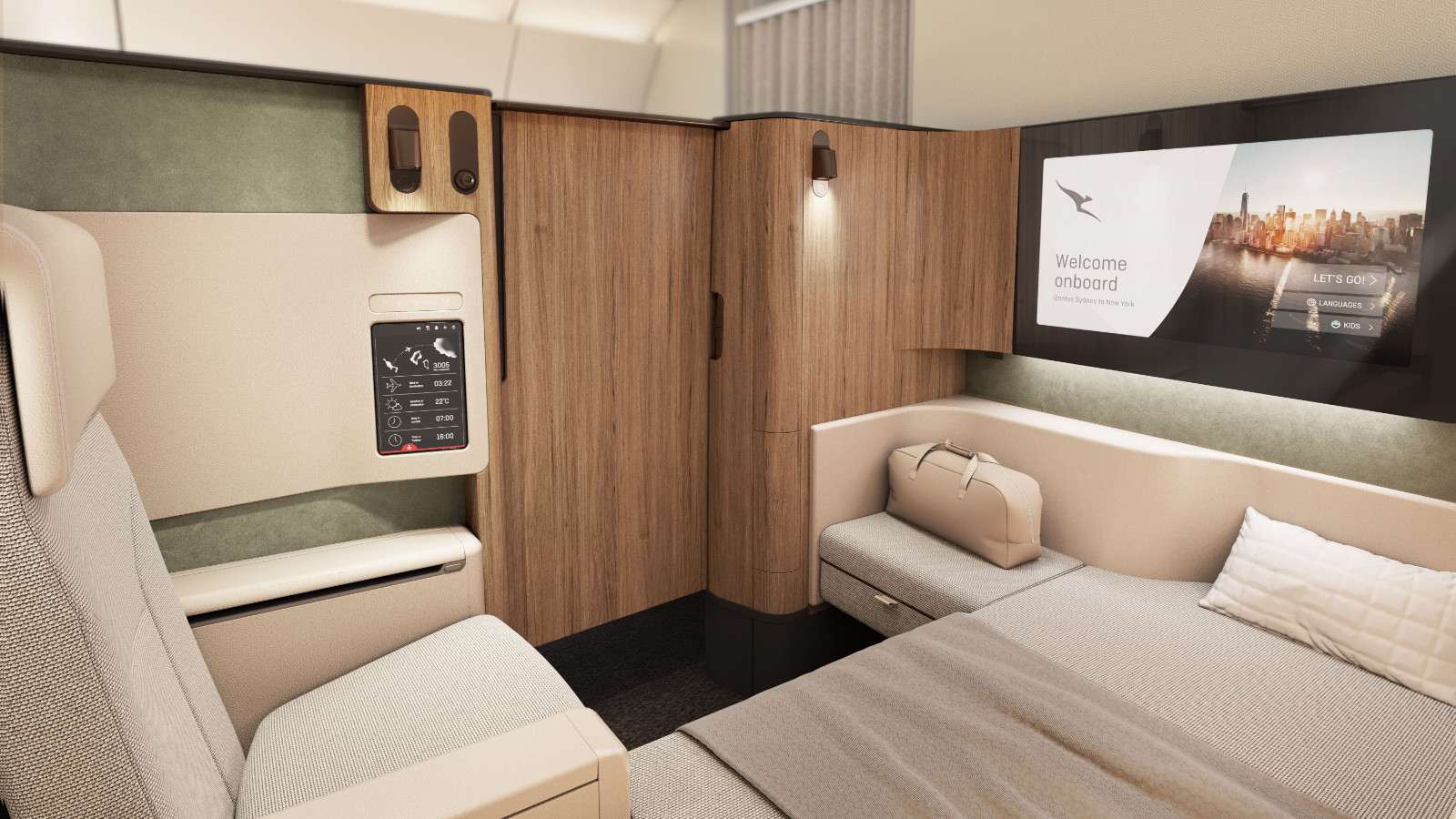
But taking just one flight longer than the world’s longest commercial service isn’t enough for this self-confessed avgeek. ‘I actually did a longer flight than this. It was a demonstration flight (that) Boeing did with a 777-200LR, and we went from Hong Kong to London. But what was so special about it? We went over Asia, over the Pacific, over North America, over the Atlantic and into London (in) 22 hours, 40 minutes.’ On a normal day, a more direct route takes just shy of 15 hours: so that one’s not something regular passengers would endure.
Winding the clock back to Quest’s very first flight
While the accomplished journalist now has a travel schedule that’s the envy of many, it had to start somewhere.
‘We all remember our first fights,’ Quest reflects. ‘Mine was on Cambrian Airways. God, a noisy … BAC One-Eleven. But I thought that was the chariot of the skies. I can still remember that piping hot little dish, the meal. It’s all part of the excitement of it.’
‘But I remember, we landed at Speke Airport in Liverpool on the way home, now called … John Lennon Airport. And I remember getting off the plane, and you walked down the steps – and I remember it was raining. I looked behind, (and) I thought, how the hell did that get in the air and stay there – and that love continued.’
Cambrian Airways would later become part of British Airways through the broader merger between British Overseas Airways Corporation (BOAC), British European Airways (BEA) and Northeast Airlines. But there are first flights, and then there are first ocean crossings…
As it happens, Quest’s first time traversing the Atlantic was aboard People’s Express. That was a US low-cost carrier that would eventually be folded into Continental Airlines. And for the trivia buffs, Continental then merged with United.
‘The thing about People’s Express in the 1980s is that you paid for your ticket on board. No, I’m absolutely serious. You made the reservation, you boarded the plane and the flight attendant came down – certainly, no touch and click. It was 1983, and she got the machine,’ Quest comments, before demonstrating the ‘click clack’ motion that was so common back in the day.
‘I have no idea how they knew if the card was valid or not. And then somebody was behind and brought your lunch down. And again, I can remember the movie, Chariots of Fire. I mean, these things are deeply ingrained in us.’
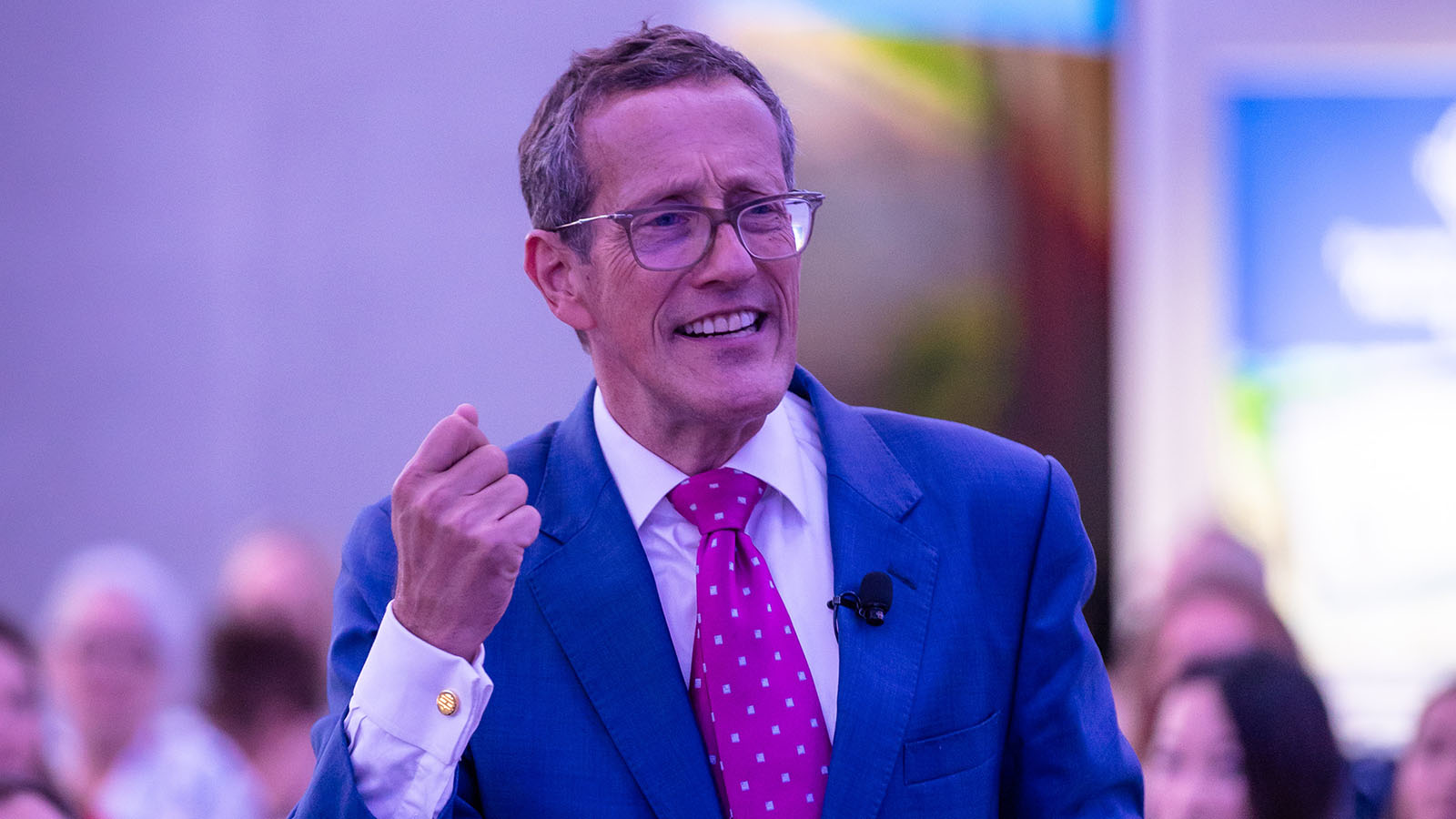
In later years, Quest would also have multiple opportunities to fly supersonic. ‘Now, I was very fortunate. I must’ve been on that four or five times … and I don’t care how rich you were, but the day you got on Concorde, you had a smile from ear to ear.’
The height of modern luxury: showering on a plane
Concorde may have been fast, but it was also quite cramped – not a flatbed to be seen. But then again, you didn’t really need one when you could fly between London and New York in around three hours. Fast-forward to today, though, and there’s a greater focus on enjoying and savouring the travel experience rather than merely arriving.
‘Who’s had the shower on the plane?’ Quest asks of the room during his keynote. ‘You are all too rich!’ he remarks – to much laughter from those who’ve mostly achieved that feat by using points. But as many of us can relate, showering at 40,000 feet is… an experience.
‘So when you have a shower on the plane, you take the first bit off. Then you take the next bit off, and you make sure the door is locked. And then you test the handle to make sure it really is locked. Then you open it again just to make sure.’
‘And then you start walking. And then you check to make sure that the flight attendant has switched on the water. It’s a little dial, it goes back reading down from (five) minutes. And then you take the next (thing) off and the next. And there comes that moment when you have to remove the last item of clothing, which you do. Then I think, I’m standing on a plane naked, and there are 200 people downstairs. And if this plane goes down, how am I going to explain this? As if that would be my biggest problem!’
‘I worry about that. But it’s true.’ It doesn’t stop Quest from using the inflight shower when there is one. But ‘you panic … what if I run out of water and I’ve still got some shampoo there? How will I get the flight attendant to come back in again? This is going to be a disaster. Are there enough towels? What happens if the fasten seatbelt sign comes on?’
Even so, ‘it’s amazing. It really is worth doing once.’ He’s keen to top that, though. When Quest learns I’ve been in Etihad’s The Residence, he rushes to shake my hand – and we’re suddenly best friends. But when he realises that I have no power to upgrade him, the handshake ends, and he quickly sprints back to his husband. Laughter ensues.
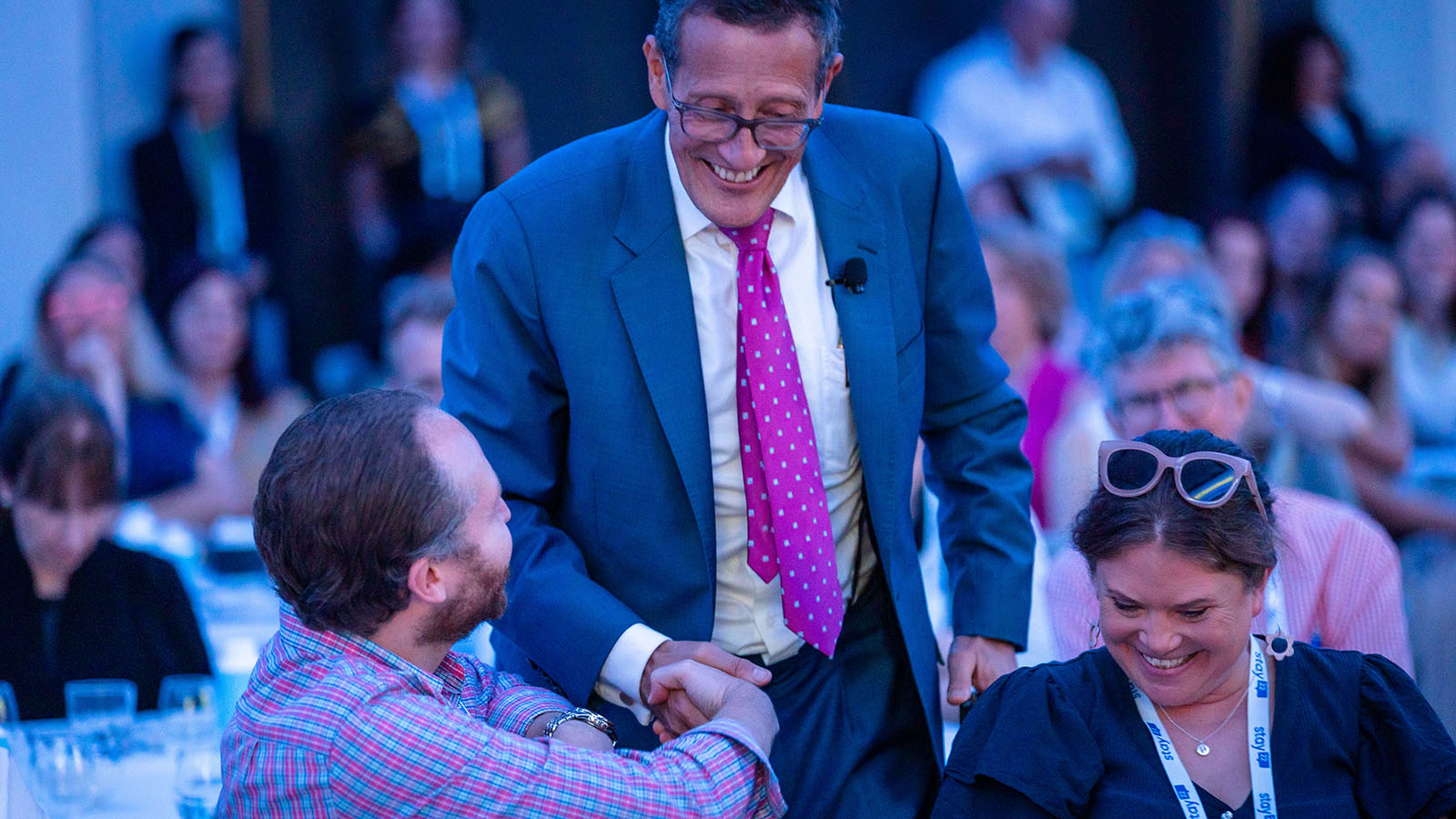
Quest explores why people travel
Speaking of lively, Quest’s address isn’t without another sprint. This time, it’s from one side of the room to the other. His arms are extended, mimicking a plane taking off: and not without calling ‘V1 … rotate’ along the way. It may get another laugh, but there’s a deeper thought behind the sentiment.
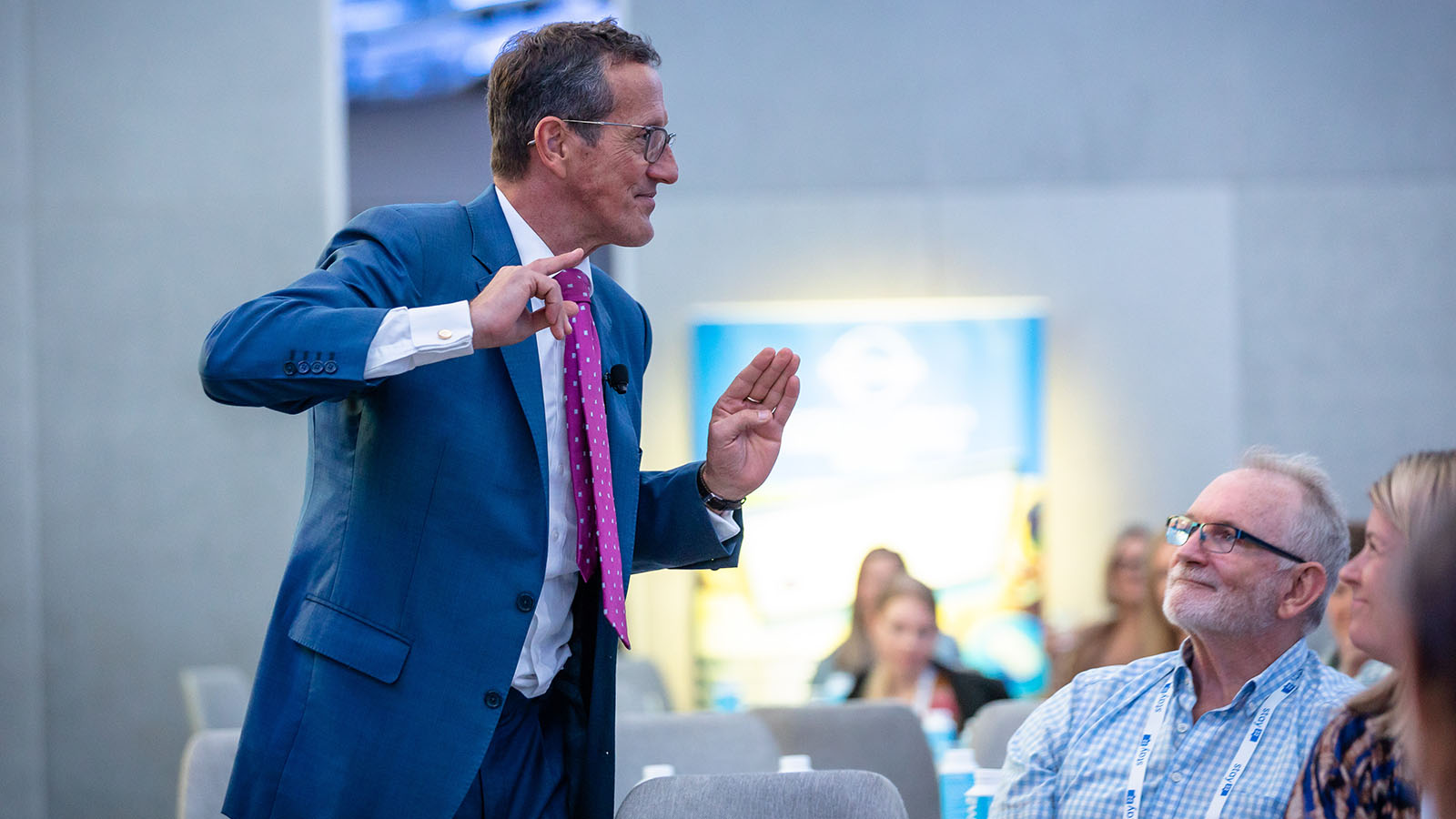
‘Why do we all travel? Why do we love to travel? This is why, think about it,’ Quest begins. ‘Who’s on that plane going to get married? Who’s going for a new job? Who has just been fired, heading home head between the legs? Who’s on their honeymoon? Who’s having that first flight – probably at the back of the plane, but enjoying every second of it? Who is going to bury a relative? Who’s going to meet up with a loved one that they haven’t seen for years? Who is just going to see the world to experience what life has to offer across an ocean?’
‘The reality is, on that aircraft, is every aspect of human emotion, human life: from the sad to the happy, from the jubilant to the worried. And once you don’t just see it as being, oh, that’s First (Class) … once you understand you are talking about souls on board, then you’ve tapped into what travel’s all about.’
‘And that’s why finally I say to you my favourite words in the language of travel: doors to automatic. It means we’re on our way.’
Also read: Under the hood of the Emirates Skywards program, with Skywards’ DSVP
Featured image courtesy of TravMedia. Chris Chamberlin attended the TravMedia Summit as a guest of TravMedia.
Stay up to date with the latest news, reviews and guides by subscribing to Point Hacks’ email newsletter.
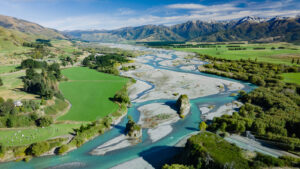
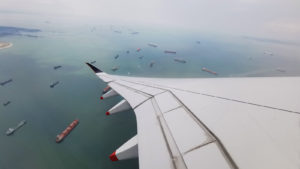
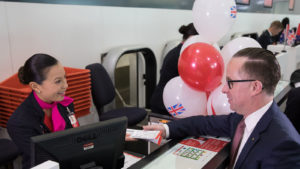
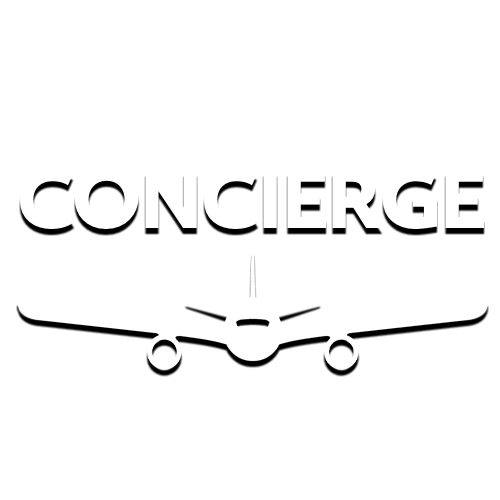

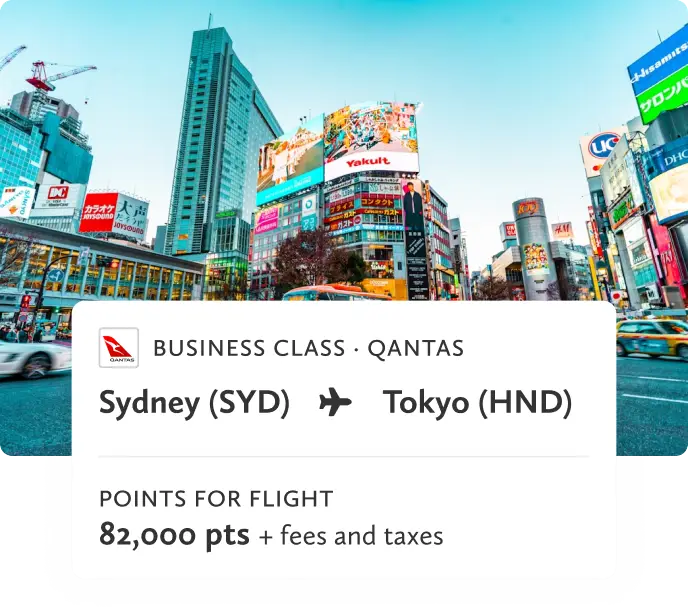
Community